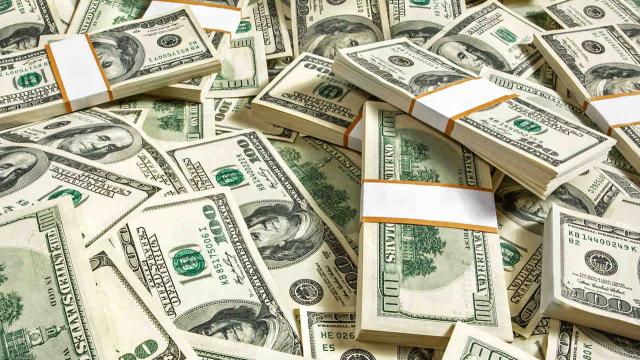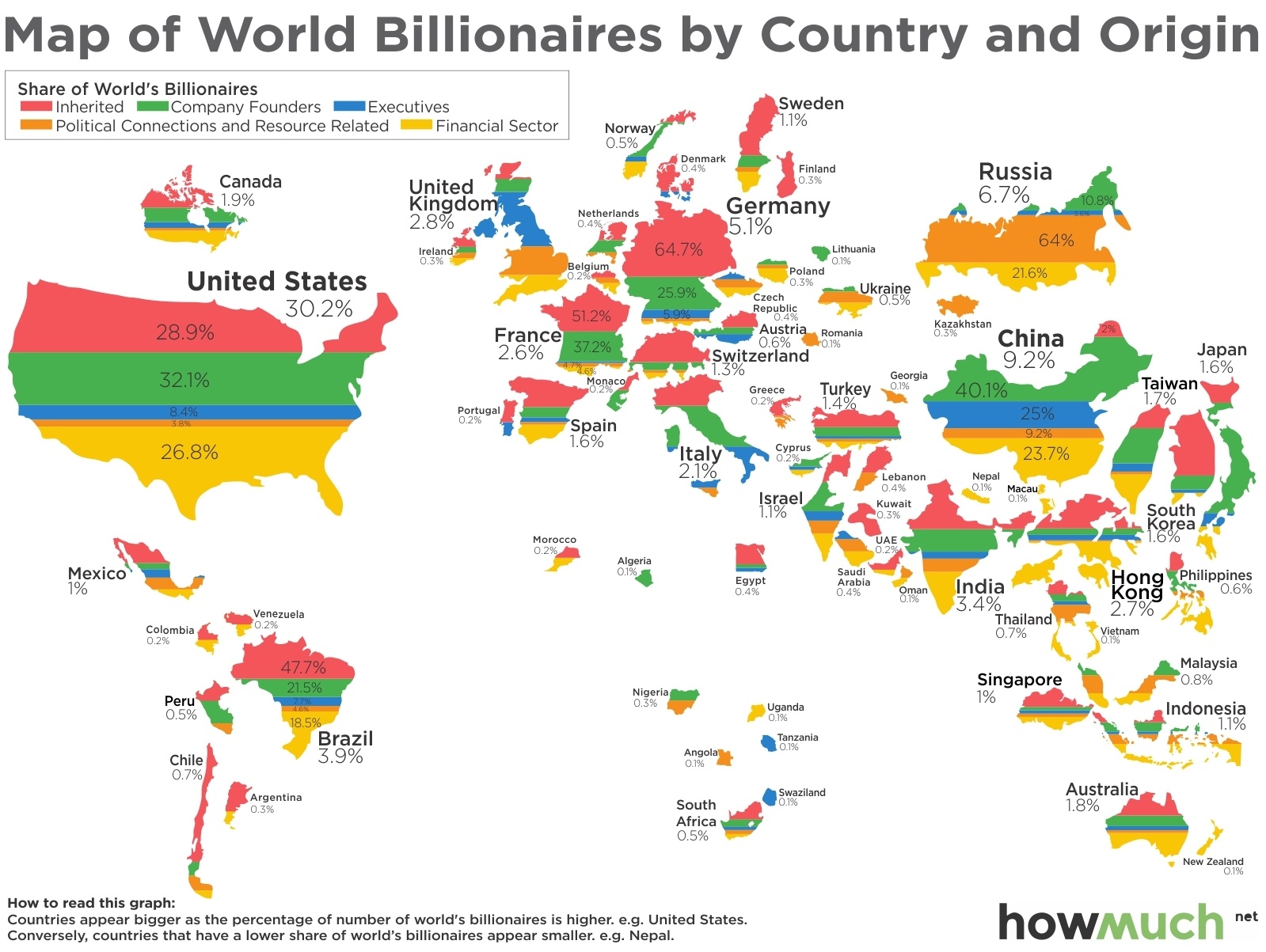
In an analysis published last Thursday that throws into stark relief the "unjust and unsustainable" nature of what economists have termed the New Gilded Age, the Swiss financial firm UBS found that the wealth of the world's billionaires grew by 17 percent in 2016, bringing their combined fortune to a record $6 trillion—more than double the gross domestic product of the United Kingdom.
The report also found that there are 1,542 billionaires in the world and more than 563 in the United States alone, more than any other country.
Josef Stadler, lead author of the UBS analysis, told the Guardian that the firm's findings demonstrate that the world is "now two years into the peak of the second Gilded Age."
The extent of the world's wealth concentration—just eight men now own as much wealth as half of the global population—raises a number of questions, one of which is whether the world's population will continue to tolerate such vast inequities, Stadler said.
"We're at an inflection point," Stadler argued. "Wealth concentration is as high as in 1905, this is something billionaires are concerned about. The problem is the power of interest on interest—that makes big money bigger and, the question is to what extent is that sustainable and at what point will society intervene and strike back?"
But despite insistence from leading economists and institutions like the International Monetary Fund that raising taxes on the wealthy is necessary to shrink the growing gap between the billionaires and everyone else, many global powers are doing precisely the opposite.
In France, President Emmanuel Macron earlier this week made what economist Thomas Piketty called a "historical error" by drastically slashing the country's wealth tax as part of his sweeping pro-business economic agenda.
The Republican-controlled U.S. Congress, meanwhile, is moving rapidly to adopt a tax plan that would deliver massive gains to the already wealthy while slashing safety net programs that low-income and middle class families depend on for survival.
According to an analysis by the People's Policy Project, the top one percent in the U.S. already owns a "stunning" 77 percent of the wealth. Meanwhile, those in the bottom ten percent are "net debtors." Non-partisan analyses have found that the GOP tax plan would make this gap even larger.
As Common Dreams reported earlier this month, even some billionaires agree that inequality is out of control, and that a more progressive tax code is necessary to remedy the problem.
"Three decades of data prove that tax cuts for the wealthy do not 'trickle down' to working people or grow the overall economy," billionaire environmentalist Tom Steyer concluded in a recent op-ed for the Los Angeles Times. "Let's raise taxes on the rich.... Let's boost wages to stimulate economic growth and job creation. It's the only way we will create broad prosperity, rebuild the middle class, and give working families a fair shake."
3 WAYS TO SHOW YOUR SUPPORT
- Log in to post comments














